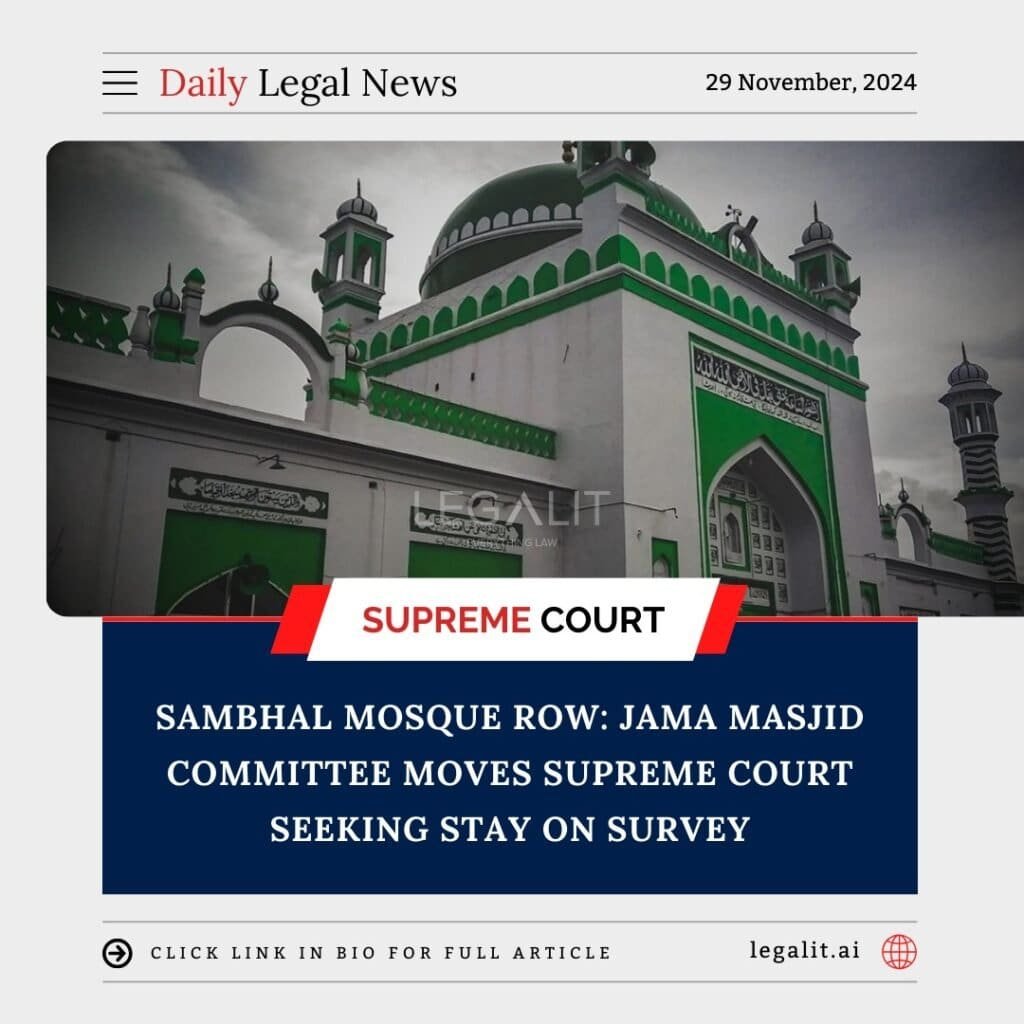
The Jama Masjid Committee in Sambhal, Uttar Pradesh, has approached the Supreme Court to seek a stay on a survey ordered by local authorities. The survey pertains to the disputed ownership of mosque premises, raising concerns over its implications on religious harmony.
Background:
The controversy arose when a survey was ordered to ascertain the legal status and ownership of the mosque. The Jama Masjid Committee argued that such actions could disrupt the communal harmony in the area and set a concerning precedent. The Committee has now moved to the Supreme Court, citing potential infringement of religious rights and misuse of administrative authority.
Court’s Rationale:
The petition submitted to the Supreme Court contends that the survey lacks a justified legal basis and risks escalating tensions in the region. The Committee has urged the Court to intervene and stay the proceedings, arguing that the matter could lead to unnecessary conflict and undermine constitutional protections for religious institutions.
Existing Measures:
Under Indian law, religious properties are afforded protection, and disputes regarding ownership or usage are typically resolved through established legal processes. Surveys of this nature are often contested when they are perceived as targeting specific communities or institutions without substantial evidence.
Conclusion:
The Supreme Court’s decision on the Jama Masjid Committee’s plea could set an important precedent for handling disputes involving religious properties. The case underscores the delicate balance between administrative authority and the constitutional mandate to protect religious freedom and communal harmony.